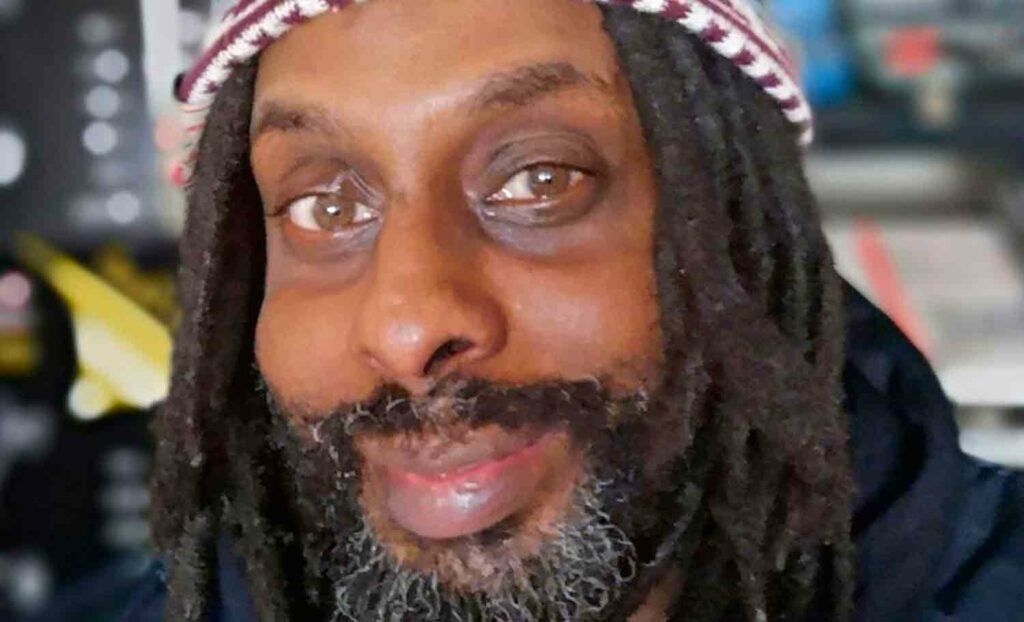Police watchdog clears officers of wrongdoing after Black man dies begging for help after arrest
Ian Taylor, 54, suffered a cardiac arrest after begging officers for help while handcuffed on the ground

Your support helps us to tell the story
From reproductive rights to climate change to Big Tech, The Independent is on the ground when the story is developing. Whether it's investigating the financials of Elon Musk's pro-Trump PAC or producing our latest documentary, 'The A Word', which shines a light on the American women fighting for reproductive rights, we know how important it is to parse out the facts from the messaging.
At such a critical moment in US history, we need reporters on the ground. Your donation allows us to keep sending journalists to speak to both sides of the story.
The Independent is trusted by Americans across the entire political spectrum. And unlike many other quality news outlets, we choose not to lock Americans out of our reporting and analysis with paywalls. We believe quality journalism should be available to everyone, paid for by those who can afford it.
Your support makes all the difference.The police watchdog has cleared seven officers of wrongdoing following the death of an asthmatic Black man who pleaded for help while struggling to breathe after his arrest.
Ian Taylor, 54, died on 29 June 2019 after suffering a cardiac arrest while being detained by Metropolitan Police officers in Coldharbour Lane in Brixton, south London.
Despite repeatedly telling the officers that he could not breathe and saying he believed he was going to die, Mr Taylor was left handcuffed and lying on the street on one of the hottest days of the year, without an inhaler, water, shade or medical assistance.
However, a report by the Independent Office for Police Conduct (IOPC), said: “We found no indication that any person serving with the police may have committed a criminal offence or behaved in a manner that would justify the bringing of disciplinary proceedings.”
One officer involved was subject to the reflective practice, meaning he was asked to think about his actions.
The IOPC’s investigation found the Met Police’s risk assessment of the arrest was inadequate while a jury inquest, conducted earlier this year, found that Mr Taylor’s severe asthma was exacerbated by stress brought on by his arrest. Dehydration was also cited as a contributing factor.
The watchdog’s report was written in December 2019 but was published last Thursday. Despite not having a copy of Mr Taylor’s post-mortem examination report at the time, it ruled “there is no evidence that any action on the part of a police officer may have caused or contributed to the death”.
More details of the incident emerged at a jury inquest, which took place in May 2022.
It heard that as Mr Taylor pleaded for help and became short of breath, officers called an ambulance which was severely delayed due to demand on the service at the time. It was delayed further because officers failed to communicate the severity of Mr Taylor’s need for an ambulance.
Police officers are allowed to drive detainees to hospital themselves in exceptional circumstances, such as when it is believed that a person will die or that their health will seriously deteriorate if not taken to hospital immediately, according to the Met’s policy.
However, the officers didn’t recall their own training and appeared not to believe that Mr Taylor was seriously unwell, telling him to “stop acting up” and to “grow up”, the inquest heard. One officer described Mr Taylor’s pleas for help as “all a load of nonsense”.
On at least three occasions when Mr Taylor told the officers that he could not breathe, officers were heard responding, “you can breathe, because you are breathing”.
Another police officer was recorded telling his sergeant that Mr Taylor was “playing the old ‘poor me’ card”. Six minutes before Mr Taylor went into cardiac arrest, the officer reported that Mr Taylor was “saying he’s got chest pains, he can’t breathe, blah blah blah, it’s all a load of nonsense, but there we go”.
Mr Taylor’s aunt, Pauline Taylor, told the inquest: “‘I need my inhaler…I can’t breathe…I’m dying.’ These were the last pleading words of my nephew. He died on the street begging for help, not from just one, but seven police officers who casually dismissed his pleas and even went so far as to laugh and mock him.
“What more could he have said in those moments to solicit help and simple humane compassion from those who are sworn to serve and protect? What has been learnt? One officer said that he would do exactly the same given the same set of circumstances…May God help us!
“Our family is broken, our pain wakes us each morning and steals into our dreams at night, but in trying to heal we recognise that the disclosures relating to Ian’s untimely and cruel death can be used as a tool to bring about better training, effective practice and holistic awareness and challenge the ugly existence of unbiased racism.”
Courtney Smith, of Duncan Smith solicitors, which represented the family, said: “If only the Metropolitan Police would have taken the words of Ian Taylor seriously, it might have prevented his death. He repeatedly told numerous police officers that he could not breathe and that he was dying but his cries for help were dismissed as ‘nonsense’.
“They did not follow their training, which would have allowed them to take him directly to hospital in a police car, to access the medical care that he so desperately needed. Instead, they left him fighting for his life on the ground, kept him handcuffed and failed to even offer him a sip of water in the 34-degree heat.”
Another report is expected by the IOPC in the coming weeks which will examine additional information shared during the inquest, according to Mr Taylor’s legal representatives.




Join our commenting forum
Join thought-provoking conversations, follow other Independent readers and see their replies
Comments